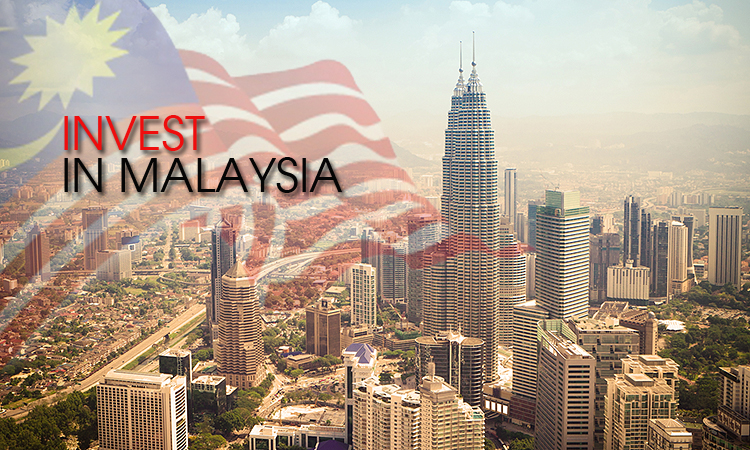7 Tips You Must Know Before Investing in Malaysia
1. Incorporating A Company
Methods of Conducting Business in Malaysia
In Malaysia, a business may be conducted:
- By an individual operating as a sole proprietor, or
- By two or more (but not more than 20) persons in partnership, or
- By two or more partners forming limited liabilities partnership; or
- By a locally incorporated company or by a foreign company registered under the provisions of the Companies Act, 2016.
All sole proprietorships and partnerships in Malaysia must be registered with the Companies Commission of Malaysia (CCM) under the Registration of Businesses Act, 1956. In the case of partnerships, partners are both jointly and severally liable for the debts and obligations of the partnership should its assets be insufficient. Formal partnership deeds may be drawn up governing the rights and obligations of each partner but this is not obligatory.
Partnership can also register Limited Liability Partnership Act 2012 which provide the partners a limited liabilities but in a form of partnership arrangement.
2. Company Structure
The Companies Act, 2016 of Malaysia stipulates that a company must be registered with the CCM in order to engage in any business activity. It governs for the following types of companies:
- Limited by shares
A company limited by shares where the personal liability of its members is limited to the amount and number of shares taken or agreed to be taken by them.
- Limited by guarantee
A company limited by guarantee where the members guarantee to meet liability up to an amount undertake to guarantee in the constitution in the event of the company being wound up.
- Unlimited
An unlimited company, where there is no limit to the members’ liability.
3. Intellectual Property Protection
Intellectual property protection in Malaysia comprises patents, trademarks, industrial designs, copyrights, geographical indications and layout designs of integrated circuits. Malaysia is a member of the World Intellectual Property Organization (WIPO) and a signatory to the Paris Convention and Berne Convention which govern these intellectual property rights.
In addition, Malaysia is also a signatory to the Agreement on Trade Related Aspects of Intellectual Property Rights (TRIPS) signed under the auspices of the World Trade Organization (WTO). Therefore, Malaysia’s intellectual property laws are in conformance with international standards and provide adequate protection to both local and foreign investors.
4. Passport and Visa Requirements
All persons entering Malaysia must possess valid national passports or other internationally recognized travel documents valid for travel to Malaysia. These documents must be valid for at least six months from the date of entry into Malaysia. Those with passports not recognized by Malaysia must apply for a document in lieu of the passport as well as a visa issued by Malaysian Embassies or Consulate offices abroad. Applications for visas can be made at the nearest Malaysian Embassies or Consulate offices abroad.
5. Visa Requirements by Country
Commonwealth countries that require visa
– Bangladesh
– Cameroon*
– Ghana*
– Pakistan
– Nigeria*
– Mozambique*
Visa Requirements for other countries
Afghanistan (Visa with reference), Equat. Guinea*, Myanmar, Angola*, Eritrea*, Nepal, Bhutan, Ethiopia*, Niger*, Burkina, Faso*, GuineaBissau*, Rwanda*, Burundi*, Hong Kong (C.I/D.I), Serbia Montenegro, Central African Republic*, India Sri Lanka, China, Israel**, United Nation (Laissez Passer), Colombia*, Ivory Coast (Cote d’ivoire)*, Western Sahara*, Congo Democratic Republic*Liberia*,Yugosalavia, Djibouti*
Note:
- For the countries marked as ( * ) are allowed to enter Malaysia by air only.
- Israel citizen** who wish to enter are required Visa and approval from Ministry Of Home Affairs, Malaysia.
- Visa is not required for a stay of less than one (1) month for ASEAN nationals except Myanmar.
- Visas are required for duration of stay exceeds (1) month except for Brunei and Singapore nationals.
Yellow Fever certificate is required to be produced upon landing in
Malaysia for countries as listed below:
Angola, Benin, Bolivia, Brazil, Burkina Faso, Burundi, Cameroon, Central African Republic, Chad, Djibouti, Equador, Guinea, Eritrea, Ethiopia,Gabon, Gambia, Ghana, Guinea-Bissau, Kenya, Mali, Niger, Nigeria, Panama, Peru, Rwanda, Sao Tome & Principe, Senegal, Sierra Leone, South Africa, Sri Lanka, St Kitts & Nevis, Suriname, Tanzania, Togo, Uganda, Venezuela, Zaire, Zambia
6. Employment of Expatriate Personnel
The Malaysian Government is desirous that Malaysians are eventually trained and employed at all levels of employment. Thus, companies are encouraged to train more Malaysians so that the employment pattern at all levels of the organizations reflects the multi-racial composition of the country.
Notwithstanding this, where there is a shortage of trained Malaysians, foreign companies are allowed to bring in expatriate personnel. In addition, foreign companies are also allowed “key posts”, that is, posts that are filled by foreigners in long term through renewable employment pass.
To further improve Malaysia’s investment environment and promote technology transfer and the inflow of foreign skills into Malaysia, the Government has further liberalised the policy on the employment of expatriate personnel.
All applications for expatriate posts from companies in the manufacturing and manufacturing related services sectors have to be submitted to MIDA.
Applications under the following categories will be processed within seven working days:
- New or additional expatriate posts by existing manufacturing companies, Operational Headquarters (OHQ), International Procurement Centres (IPC) and Regional Distribution Centres (RDC).
- Change of conditions for the approved expatriate posts such as academic qualifications and years of experience for OHQ, IPC and RDC companies.
- Extension of the duration of posts.
- Change of name of posts.
- Transfer of posts to a related or sister company following the restructuring of the company.
- Surrender of the posts approved but not filled.
The guidelines on the employment of expatriate personnel
- Manufacturing companies with foreign paid-up capital of US$2 million and above:
- Automatic approval for up to 10 expatriate posts, including five key
posts. - Manufacturing companies with foreign paid-up capital of more than
US$200,000 but less than US$2 million
Automatic approval for up to five expatriate posts, including at least one key post.
- Manufacturing companies with foreign paid-up capital of less than
US$200,000:
Key posts can be considered where the foreign paid-up capital is at least RM500,000.
The number of key posts, executive posts and non-executive posts allowed depends on the merits of each case.
Guidelines for the Manufacturing Related Services Sector
- Regional Establishments
For Operational Headquarters (OHQ), International Procurement Centres (IPC) and Regional Distribution Centres (RDC), the approval for expatriate posts including key posts will be granted according to the company’s requirements subject to the condition that the company has a minimum paid-up capital of RM500,000.
- Support Services
For Integrated Logistic Services (ILS), Integrated Market Support Services (IMS), Central Utility Facilities (CUF) and Cold Chain Facilities (CCF), key posts can be considered subject to the condition that the company has a minimum paid-up capital of RM500,000.
- Contract Research & Development (R&D) Company, R&D Company
and In-House R&D
For foreign-owned companies, the number of expatriate posts considered is based on the ratio of one expatriate to one Malaysian R&D personnel. For Malaysian-owned companies, the number of expatriate posts considered is based on the company’s request.
- ICT (Software Development Companies)
- Key posts are considered subject to the ratio of one key post to five Malaysians in the relevant technical field.
- The company is required to employ at least five fulltime Malaysian staff with technical or degree qualifications in the field of software development.
Academic qualifications and working experience as proposed by the company will be imposed as conditions of approval.
- Hotel & Tourism Projects, Technical & Vocational Training Institutions & Other Services (Storage, Treatment And Disposal Of Toxic And Hazardous Wastes, Energy Conservation, Renewable Energy Resources And Film Or Video Production & Post Production)
All applications for expatriate posts will be considered by MIDA subject to similar conditions stipulated for the manufacturing sector.
For all executive and non-executive posts, Malaysians must be trained to eventually take over.
All executive and non-executive posts approved will be subject to conditions on qualifications and/ or experience as proposed by the company.
Companies whose applications have been rejected can submit an appeal to the Chairman of MIDA.
Let us know if you need our help on applying the license!
7. Malaysia’s Labor Force and Costs
Labor Force
Malaysia offers the investor a diligent, disciplined, educated and trainable labor force. Malaysian youths who enter the labor market would have undergone at least 11 years of school education i.e. up to secondary school level, and are therefore easy to be trained in new techniques and skills.
To cater to the manufacturing sector’s expanding demand for technically trained workers, the Malaysian Government has taken measures to increase the number of engineers, technicians and other skilled personnel graduating each year from local as well as foreign universities, colleges, and technical and industrial training institutions.
In addition, Malaysia enjoys a free and competitive labor market where employer-employee relationship is cordial and harmonious. Labor costs in Malaysia are relatively low while productivity levels remain high in comparison with industrialized countries.
Labor Costs
Generally, wages in Malaysia are not regulated and it is dependent on the demand and supply of the market forces.
The Minimum Wages Order 2012 had laid down the minimum wages to be paid for all employees who fall within the First Schedule of the Employment Act 1955. Minimum wages is defined as basic wages, excluding any allowances or other payments.
The minimum wages of RM900 was set for Peninsular Malaysia and RM800 for Sabah, Sarawak and Labuan. No employer shall pay below the stipulated amount. All local and foreign employees shall be entitled to receive the minimum wages as per the Order.
Meanwhile, wage rates vary according to location and industrial sector, while supplementary benefits, which may include bonuses, free uniforms, free or subsidized transport, performance incentives and other benefits, vary from company to company.
Salaries and fringe benefits offered to management and executive personnel also vary according to the industry and employment policy of the company. Most companies provide free medical treatment, personal accident and life insurance coverage, free or subsidized transport, an annual bonus, retirement benefits and enhanced contributions to the Employees Provident Fund.



